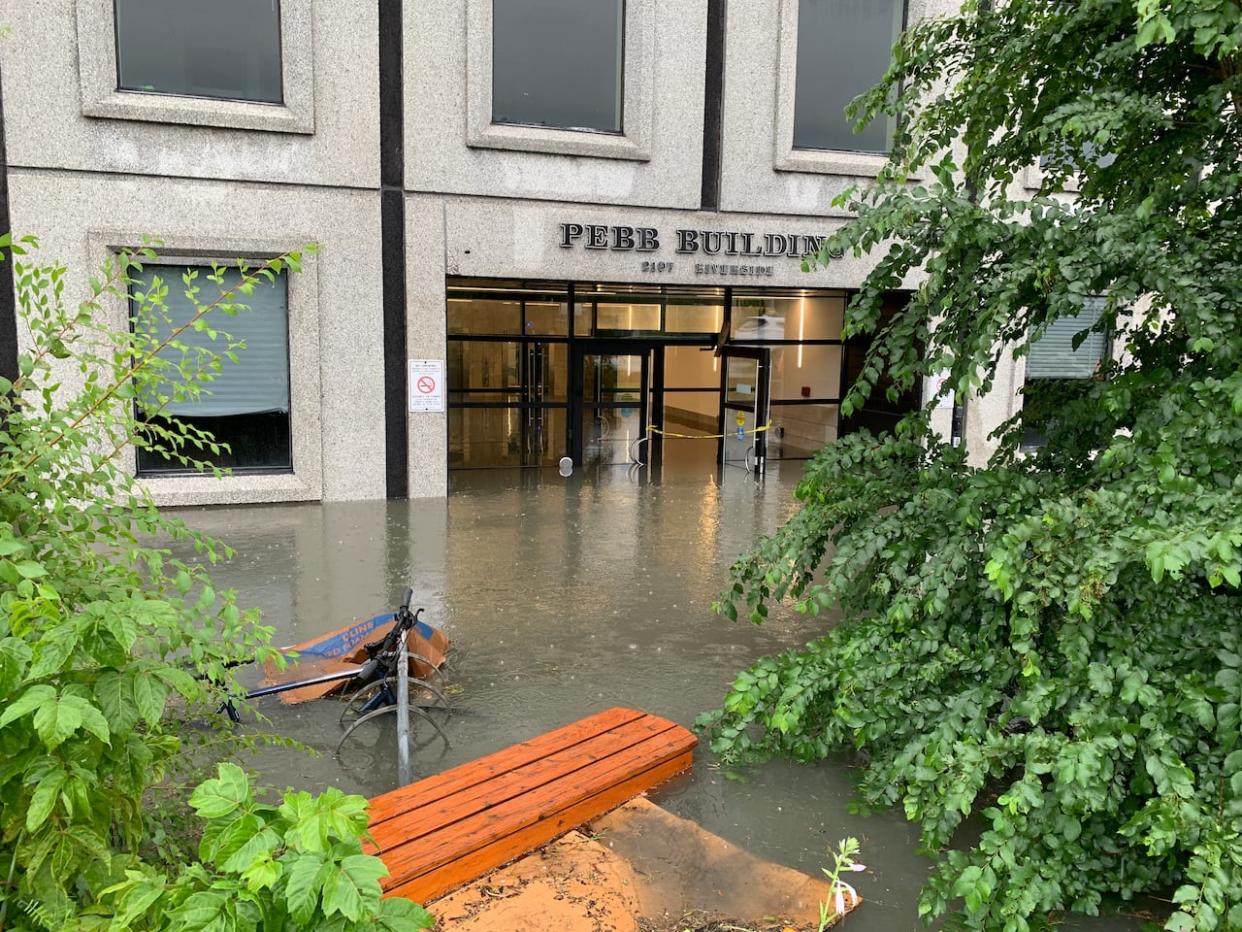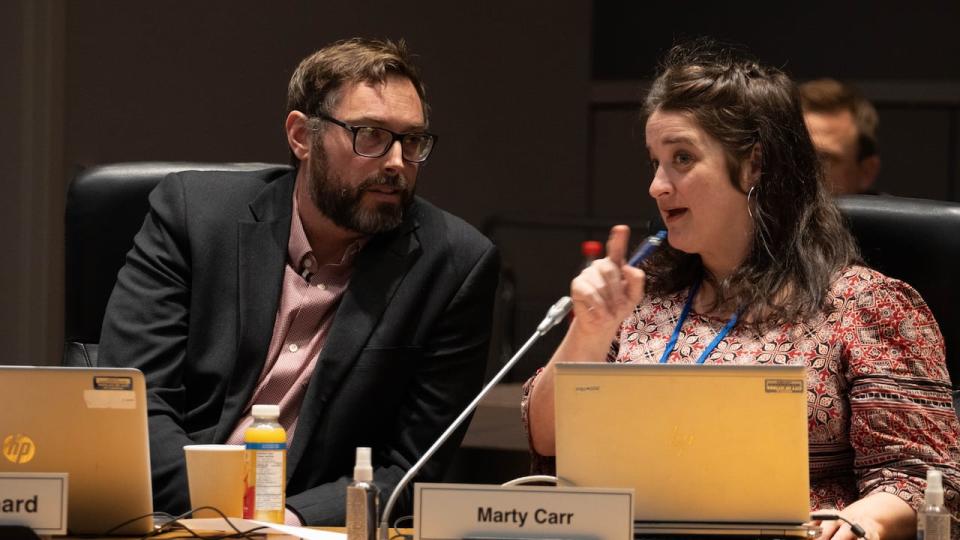Does your basement flood? Ottawa city staff want to know

City staff say Ottawa needs to brace for the kind of extreme rainfall that overwhelms drainage systems and floods basements.
Bolstering the city's defences will require better information, councillors heard from both staff and residents during Tuesday's climate change and environment committee meeting.
Staff provided an update on the aftermath of the Aug. 10, 2023, rainstorm that caused a "once in 100 years" flood.
The extreme weather event flooded roads, submerged cars and damaged homes from Barrhaven to Orléans. But staff and councillors believe the 486 flooding reports received in the aftermath don't represent the full scope of the event.
"I think a lot of people may have flooded and not really thought of it as a big issue," explained Marilyn Journeaux, director of linear water and customer services.
Journeaux said damage can range from sewage backups in basements to water seeping through cracks in foundations.
Both help the city learn, she said.
"We really want all of the information about flooding because it really helps inform us as to what is working well in our system, from where we may need to make some improvements or adjustments," said Journeaux.
Flood education to get upgrade
Coun. Marty Carr's Alta Vista ward saw more flooding reports than anywhere else in Ottawa after last summer's extreme rainfall.
She said the damage varied, but left some affordable basement apartments unlivable.
"All across my ward there were different areas, and the source of the flooding was different in each of those," Carr said.
Other councillors relayed stories about constituents still struggling to clean up seven months later, including some who found they were on the hook for tens of thousands of dollars in damages not covered by their insurance.

Capital Ward Coun. Shawn Menard and Alta Vista Coun. Marty Carr say the city needs to know where flooding is worst, so staff can better focus their efforts. (Jean Delisle/CBC)
Environment committee chair Shawn Menard said his staff went door to door last year to see how badly homes in Capital ward were impacted, because the information will help entire neighbourhoods.
"The city may look at drainage, might look at the underground infrastructure there, when they're reconstructing the street," he said.
When the rain came down, Carr got a crash course in flooding and was able to see the holes in the city's communications strategy.
She said she hopes staff will create a one-stop shop for residents to find out what aid is available, and what they can do to help prevent this from happening again.
Menard agrees that "up until this point" the city has not been doing enough to educate residents on flood protection including funding for "protective plumbing."
That program provides rebates for upgrades including sump pumps and sanitary backwater valves that stop sewage from flowing back into homes when the system is over capacity. Others measures can help increase the surface absorbency of neighbourhoods.
Many of these programs are only available in certain parts of the city, Menard said, underscoring the importance of letting the officials know if your neighbourhood has been hit by flooding.

 Yahoo News
Yahoo News 
